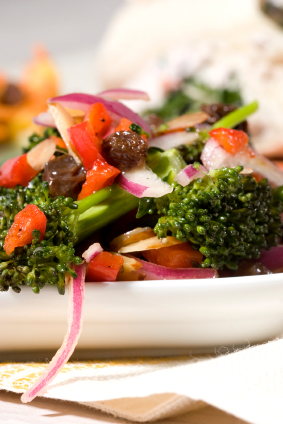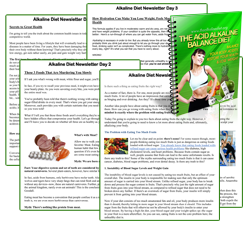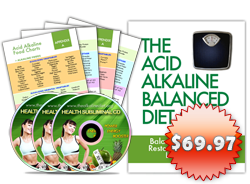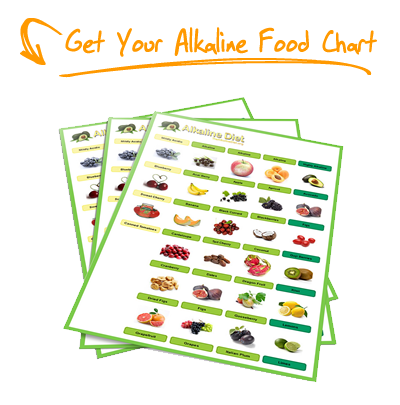Alkaline Diet Plan
Posted on 14. Apr, 2011 by Isabelle Ngin in Alkaline Diet Tips, Blog
 For many years, our diets have become more and more acidic due to daily consumption of sugars, caffeine, meat proteins, and processed foods. As a result, our body feels weak, gain weight and become more at risk of acquiring different diseases. Because of this, many nutritionist and health care practitioners have believed that the alkaline diet can help these individuals not only to lose weight but also to promote their overall health.
For many years, our diets have become more and more acidic due to daily consumption of sugars, caffeine, meat proteins, and processed foods. As a result, our body feels weak, gain weight and become more at risk of acquiring different diseases. Because of this, many nutritionist and health care practitioners have believed that the alkaline diet can help these individuals not only to lose weight but also to promote their overall health.
So what is alkaline diet?
According to the Nutritional Research Center, the alkaline diet is a dietary system that is based on consumption of 70% alkaline and 30% acid foods. According to Dr Baroody, a medical doctor, the main idea of the diet is based on pH level of the body wherein the body’s normal pH level is slightly alkaline.
Foods to Eat
Fruits and Vegetables
According to Reed Mangel, a nutritionist, the fruits and vegetables are great source of fiber, potassium, folate, phytochemical, and magnesium. In addition, fruits and vegetables can help reduce the occurrence of diabetes, cancer, and cardiovascular diseases.
According to the vegan research group, fruits and vegetables are recommended to be eaten as raw and fresh. The Harvard School of Public Health and the National Cancer Institute have recommended the consumption of 2-4 cups or 5-9 servings of vegetables and fruits per day. This was supported by the United States Department of Agriculture. The USDA also recommended a 2- 2 ½ cups of fruits and vegetables per day. Fruits and vegetables can also be mix with salads, and juices.
Nuts and Seeds
The Food and Drug Administration has recommended the consumption of almond nut, pecans, Brazil nut, macademia nut, pistachios, cashew nut and hazel nut. According to the Loma University in California, nuts are great source of selenium, protein, vitamin E, phytonutrients, and healthy fats. In addition, nuts can help lower LDL cholesterol and improve heart condition. According to The Raw Secrets book which is written by Patanaude, nuts are recommended to be eaten in small quantities, at least 30-60 g/day. In addition, nuts should be eaten directly harvested from trees or can be added on milk. Meanwhile, the Nutritional Research and Education Foundation has recommended the consumption of nuts for at least 1 ½ ounces per day.
On the other hand, Dr Becky Hand, a nutritionist, has noted that seeds such as sunflower seeds, fennel seeds, chia seeds, sesame seeds, pumpkin seeds, poppy seeds, and flaxseeds are great source of iron, zinc, fiber, and selenium. According to the American Journal of Clinical nutrition and the USDA, seeds must be consumed at least 1 ounce per day.
Spices
According to the Columbia Health Services, spices such as cinnamon, ginger, and basil allows more oxygen to pass through the bloodstream which provides the body more energy. According to Dr Alam Khan, cinnamon can help lower LDL cholesterol levels and stabilize blood sugars. A 1 tsp of cinnamon/ day is highly recommended. Cinnamon can be added within meals by sprinkling it into fresh fruits such as pears and apples. According to the diabetics journal, cinnamon should be consume for at least 1 ½ to 2 tsp per day. On the other hand, ginger can help relieve stomach problems which can be consume in a crystallized form or added to soup or tea. Meanwhile, basil is natural antibacterial and anti inflammatory wherein it can be consume directly from stalk.
General Guidelines for Alkaline Diet
What to Eat
- Fresh fruits such as pineapples, oranges, apples, strawberries, grapes, kiwi, papaya, watermelons, avocadoes, peaches, grapefruit, blueberries, pears, raisins, and lemons.
- Raw vegetables such as broccoli, kale, snap peas, zucchini, peppers, peas, green beans, garlic, onion, cauliflower, Brussels sprouts, asparagus, okra, cabbage and spinach.
- Nuts and seeds
- Ginger tea
- Soy milk
- Millet
- Quinoa
- Herb teas
What NOT to Eat
- All kinds of animal meat
- Dairy products such as milk, eggs, cheese, margarine, and butter
- Processed foods
- Canned foods
- Sodas, alcohol, and coffee
- Refined foods such as noodles





Recent Comments